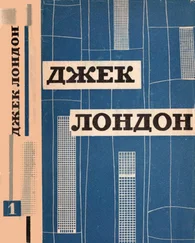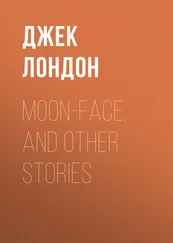Джек Лондон - Lost Face
Здесь есть возможность читать онлайн «Джек Лондон - Lost Face» — ознакомительный отрывок электронной книги совершенно бесплатно, а после прочтения отрывка купить полную версию. В некоторых случаях можно слушать аудио, скачать через торрент в формате fb2 и присутствует краткое содержание. Жанр: foreign_antique, foreign_prose, на английском языке. Описание произведения, (предисловие) а так же отзывы посетителей доступны на портале библиотеки ЛибКат.
- Название:Lost Face
- Автор:
- Жанр:
- Год:неизвестен
- ISBN:нет данных
- Рейтинг книги:4 / 5. Голосов: 1
-
Избранное:Добавить в избранное
- Отзывы:
-
Ваша оценка:
- 80
- 1
- 2
- 3
- 4
- 5
Lost Face: краткое содержание, описание и аннотация
Предлагаем к чтению аннотацию, описание, краткое содержание или предисловие (зависит от того, что написал сам автор книги «Lost Face»). Если вы не нашли необходимую информацию о книге — напишите в комментариях, мы постараемся отыскать её.
Lost Face — читать онлайн ознакомительный отрывок
Ниже представлен текст книги, разбитый по страницам. Система сохранения места последней прочитанной страницы, позволяет с удобством читать онлайн бесплатно книгу «Lost Face», без необходимости каждый раз заново искать на чём Вы остановились. Поставьте закладку, и сможете в любой момент перейти на страницу, на которой закончили чтение.
Интервал:
Закладка:
Jack London
Lost Face
LOST FACE
It was the end. Subienkow had travelled a long trail of bitterness and horror, homing like a dove for the capitals of Europe, and here, farther away than ever, in Russian America, the trail ceased. He sat in the snow, arms tied behind him, waiting the torture. He stared curiously before him at a huge Cossack, prone in the snow, moaning in his pain. The men had finished handling the giant and turned him over to the women. That they exceeded the fiendishness of the men, the man’s cries attested.
Subienkow looked on, and shuddered. He was not afraid to die. He had carried his life too long in his hands, on that weary trail from Warsaw to Nulato, to shudder at mere dying. But he objected to the torture. It offended his soul. And this offence, in turn, was not due to the mere pain he must endure, but to the sorry spectacle the pain would make of him. He knew that he would pray, and beg, and entreat, even as Big Ivan and the others that had gone before. This would not be nice. To pass out bravely and cleanly, with a smile and a jest – ah! that would have been the way. But to lose control, to have his soul upset by the pangs of the flesh, to screech and gibber like an ape, to become the veriest beast – ah, that was what was so terrible.
There had been no chance to escape. From the beginning, when he dreamed the fiery dream of Poland’s independence, he had become a puppet in the hands of Fate. From the beginning, at Warsaw, at St. Petersburg, in the Siberian mines, in Kamtchatka, on the crazy boats of the fur-thieves, Fate had been driving him to this end. Without doubt, in the foundations of the world was graved this end for him – for him, who was so fine and sensitive, whose nerves scarcely sheltered under his skin, who was a dreamer, and a poet, and an artist. Before he was dreamed of, it had been determined that the quivering bundle of sensitiveness that constituted him should be doomed to live in raw and howling savagery, and to die in this far land of night, in this dark place beyond the last boundaries of the world.
He sighed. So that thing before him was Big Ivan – Big Ivan the giant, the man without nerves, the man of iron, the Cossack turned freebooter of the seas, who was as phlegmatic as an ox, with a nervous system so low that what was pain to ordinary men was scarcely a tickle to him. Well, well, trust these Nulato Indians to find Big Ivan’s nerves and trace them to the roots of his quivering soul. They were certainly doing it. It was inconceivable that a man could suffer so much and yet live. Big Ivan was paying for his low order of nerves. Already he had lasted twice as long as any of the others.
Subienkow felt that he could not stand the Cossack’s sufferings much longer. Why didn’t Ivan die? He would go mad if that screaming did not cease. But when it did cease, his turn would come. And there was Yakaga awaiting him, too, grinning at him even now in anticipation – Yakaga, whom only last week he had kicked out of the fort, and upon whose face he had laid the lash of his dog-whip. Yakaga would attend to him. Doubtlessly Yakaga was saving for him more refined tortures, more exquisite nerve-racking. Ah! that must have been a good one, from the way Ivan screamed. The squaws bending over him stepped back with laughter and clapping of hands. Subienkow saw the monstrous thing that had been perpetrated, and began to laugh hysterically. The Indians looked at him in wonderment that he should laugh. But Subienkow could not stop.
This would never do. He controlled himself, the spasmodic twitchings slowly dying away. He strove to think of other things, and began reading back in his own life. He remembered his mother and his father, and the little spotted pony, and the French tutor who had taught him dancing and sneaked him an old worn copy of Voltaire. Once more he saw Paris, and dreary London, and gay Vienna, and Rome. And once more he saw that wild group of youths who had dreamed, even as he, the dream of an independent Poland with a king of Poland on the throne at Warsaw. Ah, there it was that the long trail began. Well, he had lasted longest. One by one, beginning with the two executed at St. Petersburg, he took up the count of the passing of those brave spirits. Here one had been beaten to death by a jailer, and there, on that bloodstained highway of the exiles, where they had marched for endless months, beaten and maltreated by their Cossack guards, another had dropped by the way. Always it had been savagery – brutal, bestial savagery. They had died – of fever, in the mines, under the knout. The last two had died after the escape, in the battle with the Cossacks, and he alone had won to Kamtchatka with the stolen papers and the money of a traveller he had left lying in the snow.
It had been nothing but savagery. All the years, with his heart in studios, and theatres, and courts, he had been hemmed in by savagery. He had purchased his life with blood. Everybody had killed. He had killed that traveller for his passports. He had proved that he was a man of parts by duelling with two Russian officers on a single day. He had had to prove himself in order to win to a place among the fur-thieves. He had had to win to that place. Behind him lay the thousand-years-long road across all Siberia and Russia. He could not escape that way. The only way was ahead, across the dark and icy sea of Bering to Alaska. The way had led from savagery to deeper savagery. On the scurvy-rotten ships of the fur-thieves, out of food and out of water, buffeted by the interminable storms of that stormy sea, men had become animals. Thrice he had sailed east from Kamtchatka. And thrice, after all manner of hardship and suffering, the survivors had come back to Kamtchatka. There had been no outlet for escape, and he could not go back the way he had come, for the mines and the knout awaited him.
Again, the fourth and last time, he had sailed east. He had been with those who first found the fabled Seal Islands; but he had not returned with them to share the wealth of furs in the mad orgies of Kamtchatka. He had sworn never to go back. He knew that to win to those dear capitals of Europe he must go on. So he had changed ships and remained in the dark new land. His comrades were Slavonian hunters and Russian adventurers, Mongols and Tartars and Siberian aborigines; and through the savages of the new world they had cut a path of blood. They had massacred whole villages that refused to furnish the fur-tribute; and they, in turn, had been massacred by ships’ companies. He, with one Finn, had been the sole survivor of such a company. They had spent a winter of solitude and starvation on a lonely Aleutian isle, and their rescue in the spring by another fur-ship had been one chance in a thousand.
But always the terrible savagery had hemmed him in. Passing from ship to ship, and ever refusing to return, he had come to the ship that explored south. All down the Alaska coast they had encountered nothing but hosts of savages. Every anchorage among the beetling islands or under the frowning cliffs of the mainland had meant a battle or a storm. Either the gales blew, threatening destruction, or the war canoes came off, manned by howling natives with the war-paint on their faces, who came to learn the bloody virtues of the sea-rovers’ gunpowder. South, south they had coasted, clear to the myth-land of California. Here, it was said, were Spanish adventurers who had fought their way up from Mexico. He had had hopes of those Spanish adventurers. Escaping to them, the rest would have been easy – a year or two, what did it matter more or less – and he would win to Mexico, then a ship, and Europe would be his. But they had met no Spaniards. Only had they encountered the same impregnable wall of savagery. The denizens of the confines of the world, painted for war, had driven them back from the shores. At last, when one boat was cut off and every man killed, the commander had abandoned the quest and sailed back to the north.
Читать дальшеИнтервал:
Закладка:
Похожие книги на «Lost Face»
Представляем Вашему вниманию похожие книги на «Lost Face» списком для выбора. Мы отобрали схожую по названию и смыслу литературу в надежде предоставить читателям больше вариантов отыскать новые, интересные, ещё непрочитанные произведения.
Обсуждение, отзывы о книге «Lost Face» и просто собственные мнения читателей. Оставьте ваши комментарии, напишите, что Вы думаете о произведении, его смысле или главных героях. Укажите что конкретно понравилось, а что нет, и почему Вы так считаете.












